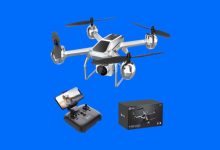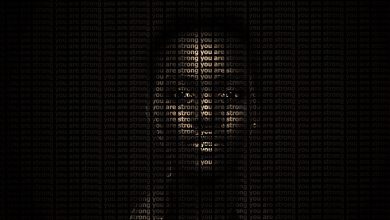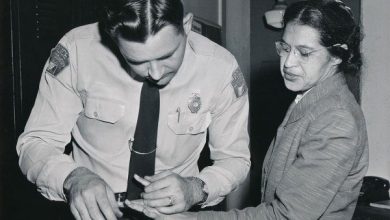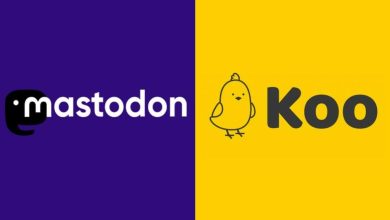.
If in the not-too-distant past, questioning about professional choice would result in answers like, lawyer, doctor, engineer, teacher or firefighter, today you can hear: I want to be an influencer…
Although many people consume content from several of these new “professionals” who rose to this status with the growth of the Internet, it is difficult for the majority and even for some influencer candidates, to explain what encompasses their daily lives or even if the activity can be seen that way.
The recognition of the digital influencer as a profession
At the time of this post, there are more than 2,200 professional occupations in Brazil that are recognized as professions by the Ministry of Labor and since February 2022, the digital influencer – or digital influencer, in English – has joined this list, being duly registered in the Classification Brasileira de Ocupações (CBO) under nº 2.534-10.
It is still not a regulated profession, which requires an associated law, which only becomes effective after processing in the National Congress and presidential sanction.
However, it was an important step and in parallel there have been movements by various influencers for parliamentarians to work around the regulation and there are even initiatives for a union of the category.
What is the future of the profession?
Part of the answer is related to and dependent on the eventual creation of legislation that regulates the profession, as well as other initiatives, such as the creation of unions, associations, councils and organizations that support, encourage and, above all, institute mechanisms for inspection and control of the activity. .
Imagine that there was not the same for the medical profession. In this hypothetical scenario, in theory, anyone with some knowledge of medicines and the functioning of the human body could call themselves a doctor and prescribe treatments, medicines, make appointments and there would be no supervision or instruments to curb inadequate performance.
Keeping the due proportions, this is almost the current scenario for those who intend to act as a digital influencer.
A recent study carried out by Nielsen, places Brazil as the country of influencers, since there are more than 10 millions if we consider those who have at least 1000 followers, on Instagram, TikTok and YouTube platforms.
When considering those with at least 10,000 followers, the number is still quite high – there are 500,000 influencers.
We have the exact dimension of what this still high number represents, knowing that this second quantity (500 thousand) is greater than the number of engineers and is equivalent to the number of doctors in the country and it is estimated a growth of around 50 % in the next year.
In a study this time of Hootsuite (We Are Social)points out that Brazil ranks second in the world, where Internet users most follow influencers – 44.3% of people follow an influencer.
One last fact in this regard reinforces that soon we should have as many influencers as followers, since 75% of young Brazilians revealed that they want to be influencers and that financial success is their main motivation for wanting this condition.
Although the activity is not yet governed by labor legislation, its recognition as a profession is in full compliance with the Brazilian legal system, especially the top and bottom of Kelsen’s pyramid (Constitution, Ordinary Laws and Customs) and already serves as a starting point for starting point for the performance in the area to develop under more solid and secure conditions, at the same time and as paradoxical as it may seem, it does not guarantee that anyone can try the same.
It should also be clear that while there is no legislation, recognition as a profession does not give the same legal guarantees, nor does it characterize an employment relationship, as for example, is the case of the social media analyst, who can act under the protection of the labor legislation.
Seen in another way, the absence of regulation allows anyone, even despite meeting the basic conditions to be so and the consequences of their actions, to act as an influencer and harm both those who intend to do it professionally, producing the precariousness of the sector, like the followers eventually.
As in any other activity, these “adventurers” will accept jobs for less, but also without the care, demands and professionalism that should come with it. At the other end, there are companies that simply allocate much smaller amounts and distribute them among dozens of influencers, hoping for the same result that only one could give them.
As much as the influencer acts with the Digital Marketing of a client company, his work is seen as a service provider or autonomous, being necessary to conclude a contract between the parties and must be done with specialized legal advice.
In other words, despite the Constitution and some laws guaranteeing some rights, the complete protection of workers in the area and the limitation of action exclusively on the part of those who intend to work professionally, depend on the existing bills coming to fruition.
How to become a professional in the field?
Regardless of the regulation, the fact of appearing in the Brazilian Classification of Occupations (CBO) already presupposes a series of “obligations” for the professional in the area.
It has a list of recommended skills and competencies that professionals in the field should have, such as networking skills, good communication skills, proactivity, creativity and initiative, which are nothing more than desirable characteristics to perform properly.
More objectively, in a study by the same CBO on professional activities, it groups them into 7 categories:
- Management of social networks;
- Social media monitoring;
- Elaboration of strategic planning of Digital Marketing;
- Content development / production planning;
- Influencer Marketing Management;
- Management of relationship activities with the public / followers;
- Management of performance evaluation results.
In practical terms, it means that just as an engineer or a doctor is required to have a set of disciplines so that they are able to adequately perform their professions, influencers are also expected to invest in their own training with a view to this set of skills. Skills.
But since there is no college or higher-level courses aimed at training influencers, what to do?
Anyone who intends to work in the area needs to become a professional, even if the beginning is casual or just a hobby or hobby.
Informality needs to give way to behavior worthy of the responsibility that is intended to be able to influence people and that, both in the role of a company (eg MEI) or as a regulated profession, also produces consequences in the legal field.
In addition, the Consumer Defense Code (CDC) and the National Council for Advertising Self-Regulation (Conar) already provide for punishments for certain situations in which the performance of an influencer configures consumer and advertising relationships.
In general, it is highly desirable to take courses and training in the following areas:
- Marketing – having good knowledge in Marketing, whether traditional or Digital, is essential for the actions taken to be based on concepts and not just on intuition and experience. Specifically in the case of Digital Marketing, there are a number of themes under it, which are fundamental, such as Content Marketing and SEO, for example;
- Administration – several of the fundamentals of Administration are important in the activity, notions of planning (strategic planning, content planning, etc.), time management, strategic market analysis, costs, metrics and indicators, etc.;
- Psychology – applied psychology in advertising and the resulting issues, such as, for example, how consumer and customer relationships with brands and companies develop;
- Current affairs – current affairs and basic socioeconomic notions are also desirable and can contribute to providing some predictability in the segment in which it operates, as well as to better position the content produced;
- Technology – especially the technology associated with the Internet and which ranges from social networks and their operation, the main services and resources, as well as software (applications) and hardware (camera, microphone, etc.) that serve as tools to carry out the work;
- Ethics – ethics is so essential that most colleges include a semester of this discipline in the curriculum of many higher education courses, which in everyday life will be useful to guide relationships with followers and with the companies for which services will be provided ;
- Oratory – oratory or the ability to speak and express oneself well, fluently, with rhetoric, in public, especially due to the growth in the consumption of audiovisual content, is another aspect that deserves attention in professional training.
Naturally, those who wish to develop in the digital influencer profession also need to know as much as possible about the central or main theme that their content deals with and avoid invading the area of other professionals.
That is, you can even be an influencer in the area of nutrition and therefore talk about it, as long as you are a nutritionist.
Conclusion
The activity that started as a hobby, today is a profession that requires a wide range of skills and training from the digital influencer.
.








